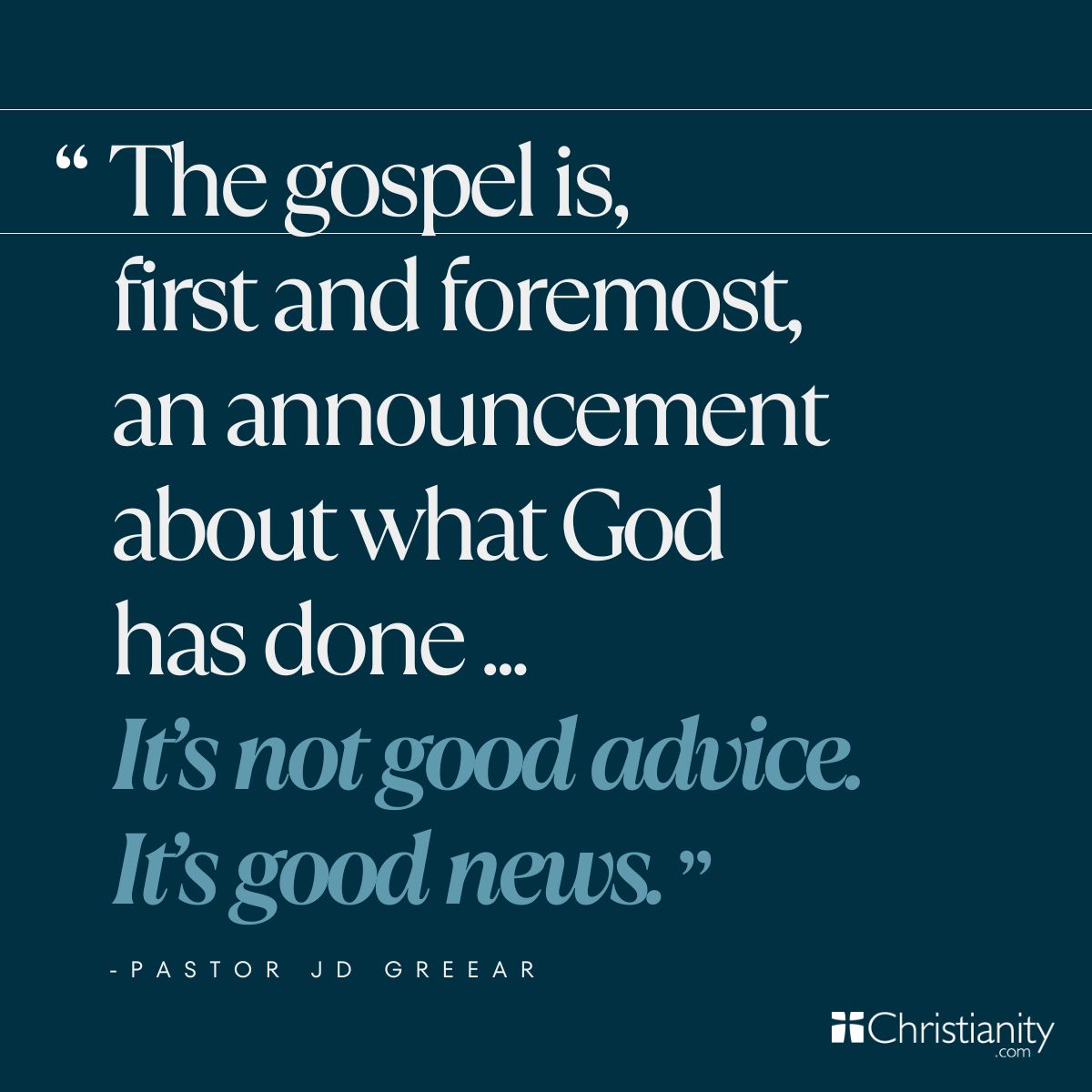
Imagine getting the news of a lifetime and being unable to speak until that news came to fruition. That’s exactly what happened to Zechariah as he and his wife, Elizabeth, awaited their baby after years of asking God to provide.
In Zechariah’s day, it was standard practice that the firstborn son was named for the father, and if not the father, at least someone in their family’s history. So when Elizabeth got pregnant, everyone expected them to name the child “Zechariah.” But mute Zechariah, waving his hands around and scribbling on a tablet (the first-century kind, not the 21st-century kind), made it clear that the kid’s name was “John.” There was no one named John in Zechariah’s family. But “John” was the name God had given him. So “John” it was.
After John’s miraculous birth, Zechariah, now able to speak, bursts out in song. It makes me wonder: If I had been unable to speak for nine months, what would my first words be? What would yours be? These are Zechariah’s words:
“Blessed be the Lord God of Israel, for he has visited and redeemed his people and has raised up a horn of salvation for us in the house of his servant David.” - Luke 1:68–69 ESV
Anybody have “horn” on their Bingo board? No?
Throughout history, many have prayed for a baby, and when God granted their request, they expressed thanksgiving, some even wrote songs or poems to express that, but I doubt any of them did so by comparing the birth of their baby to a horn.
Zechariah’s imagery was obviously poetic, but it was not something he came up with. By using the image of a horn, Zechariah was drawing from a rich Old Testament tradition.
The “horn,” you see, was a common image throughout the Old Testament, symbolizing four distinct things—strength, abundance, anointing, and announcement. To which you might say, How can one image stand for so many different things? Clearly, horns were more significant to ancient people.
But just think about it. Horns naturally indicate strength. A lot of sports teams feature animals with horns—rams, bulls, buffaloes. I, for one, wouldn’t want to grapple with an animal that’s got horns. I’d take on a frog or something. Maybe a really small dog. But not a bull.
Horns also symbolized abundance. Think of the American tradition of the cornucopia (“corn” being another version of “horn”). I’m not sure how the tradition got started, but you’ve seen it—a horn overflowing with all kinds of food.
Horns were also used in the Old Testament to anoint key leaders. The horn would be used to pour oil on the head of a priest or a king, setting them apart for special service to God. Often, the anointing with oil coincided with a special anointing of God’s Spirit.
Last up, horns were used to make announcements, often a call to war. In this way, a literal horn was like a trumpet today.
So maybe four symbols for one object actually make sense.
But here’s what’s great about Zechariah’s horn imagery: He wasn’t just pointing backward; he was also pointing forward to a new strength, abundance, anointing, and announcement—to Jesus himself.
Israel was looking for a coming king. But they assumed that king would come riding on a horse with splendor and riches and be followed by an army. They were looking for strength and abundance.
You know what they weren’t looking for? A baby born into poverty, lying in a manger.
But this little, helpless baby did have power. He had the power to open blind eyes, multiply bread and fish, command demons to flee, walk on water, heal all manner of sickness, and raise the dead—something that all humans since the dawn of time have wanted and have failed to do.
Yes, Jesus often hid his power, knowing the moment he dangled in front of us healing from all sickness or power over nature or the power to create food from nothing, we’d focus on that and miss his most important message—our need to be restored to God. But the power was there. Jesus, the horn of God’s strength.
Jesus was also the horn of God’s abundance, the bread of life. He said that those who feasted on him would never hunger. He was the fountain of living water, and he said that those who drank from him would never thirst. This was illustrated most powerfully through his feeding of the 5,000, where he took five loaves and two fish and multiplied it so that not only was there enough for the 5,000 but 12 baskets of leftovers. This miracle was not primarily about God’s promises to multiply what we give him and give it back to us; it is primarily about the all-satisfying, abundant provision of Jesus’ presence for our deepest soul needs.
The king everyone had been waiting for was the Messiah, or “mashach,” the one anointed by God with the oil from his horn of power and abundance. In fact, the Greek translation of “mashach” is “Christ.” When we say “Jesus Christ,” we’re not saying Jesus’ last name. We’re saying, “Jesus, the anointed one, the one in whom all the riches of God’s fullness are found, the one on whom God has poured out his Spirit.”
Finally, Jesus was God’s announcement of salvation. Like John the Baptist, Jesus was an announcement, God sounding the horn that the battle was beginning and the Day of Atonement had arrived. The gospel is, first and foremost, an announcement about what God has done, and it instructs us on how to live because of it. It’s not good advice, it’s good news. God won a victory for us, and we no longer need to live in fear.

When John the Baptist was born, God spoke again after years of silence, giving Zechariah and Israel a second chance. This is good news for us because when it feels like God is distant, forgetful, or unloving, Jesus is God’s horn of announcement, declaring once and for all that the greatest miracle of all has happened.
That miracle wasn’t a baby born to a couple in their old age or even one born to a virgin; it was a man who fulfilled 1,200 years of prophecy, was crucified according to prophecy, put into a grave, and walked out of that grave in his own power three days later.
Photo Credit: SWN Design

Pastor J.D. completed his Ph.D. in Theology at Southeastern Baptist Theological Seminary. He serves as a member of the Board of Directors of Chick-fil-A, serves as a Council member for The Gospel Coalition, and recently served as the 62nd president of the Southern Baptist Convention. Pastor J.D. and his wife Veronica are raising four awesome kids.
"Editor's Note: Pastor JD Greear's "Ask the Pastor" column regularly appears at Christianity.com, providing biblical, relatable, and reliable answers to your everyday questions about faith and life. Email him your questions at [email protected]."


_639003522088907085.jpg)
